HQDCB confirmed its institutional capacity and effectiveness — Oleksandr Drozdov
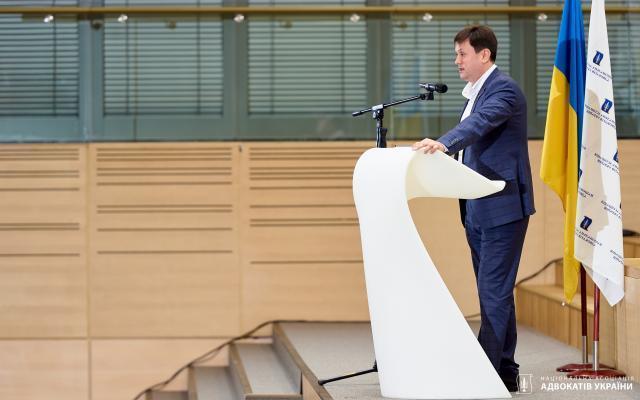
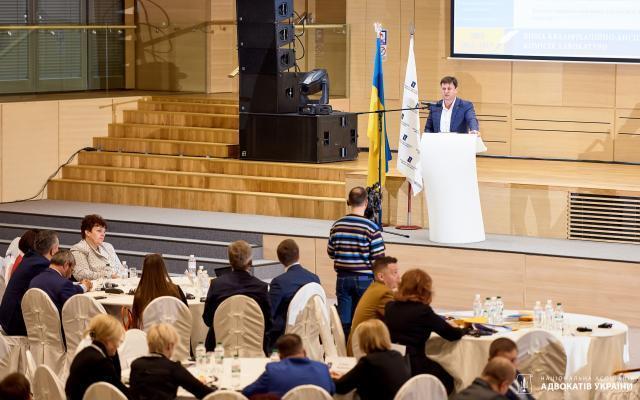
During 5 years of activity, the HQDCB has confirmed its institutional capacity and the effectiveness of its powers and authority provided for by the law.
This was mentioned by the HQDCB Chairman Oleksandr Drozdov during his speech at the international conference “UNBA: 5 Years of Success”.
“The HQDCB meetings are held on a monthly basis. Over the past years, we held meetings every month and duly organized our work. And every month we had a quorum, that is, all the colleagues who are representatives of the regions, and the HQDCB leadership takes it very seriously and we understand that all Bar community is watching for us”, — said Oleksandr Drozdov, the HQDCB Chairman.
During 2014 we received 763 applications, complaints, appeals and letters. In a period from 2014 till 2016 the number has increased to 2000 thousand. As of the third quarter of 2017, the HQDCB has reviewed about 1400 similar letters. In general, the HQDCB Secretariat estimates that in terms of quantitative and qualitative indicators the volume of incoming correspondence processed starting from 2014 to date reaches 7000 thousand documents.
According to the HQDCB Chairman, the protection and representation of the interests of the bar self-government bodies in courts was also carried out at a high professional level. It is important that in these processes the advocates apply the practice of the European Court of Human Rights.
“In 2016 a very important and fatal decision was made by the Supreme Court of Ukraine. By this time, the complaints were often filed to a court of general jurisdiction, when they wanted to challenge our decisions, and sometimes to courts of administrative jurisdiction. The Supreme Court, at a meeting of two chambers of civil and administrative jurisdiction, has ruled that disputes with the HQDCB shall be resolved by the administrative courts”, —recalled Oleksandr Drozdov, the HQDCB Chairman.
The presentation of results for the 5 years of HQDCB activities can be found by following this link.
Popular news
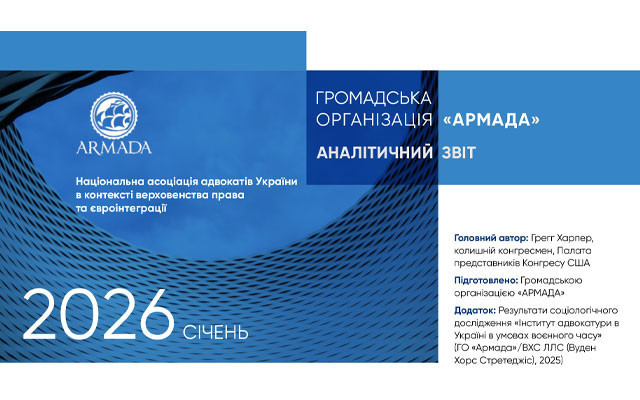
European integration
A translation of the report on advocacy presented to the European Parliament has been published
A translation of a research report on the Ukrainian advocacy profession in wartime, previously presented to the European Parliament in Brussels, has been published. The document is presented as a basis for discussion on the rule of law, Ukraine's European integration aspirations, and countering Russian disinformation in the legal sphere.
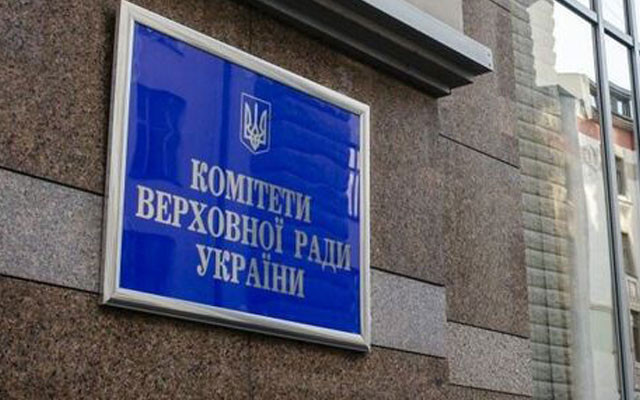
Legislation
The Verkhovna Rada Committee criticized the format of the government working group on advocacy
The implementation of the Roadmap on the rule of law (approved by Cabinet of Ministers Resolution No. 475-r of May 14, 2025) in relation to advocacy raises the practical question of who exactly should prepare legislative changes and how.
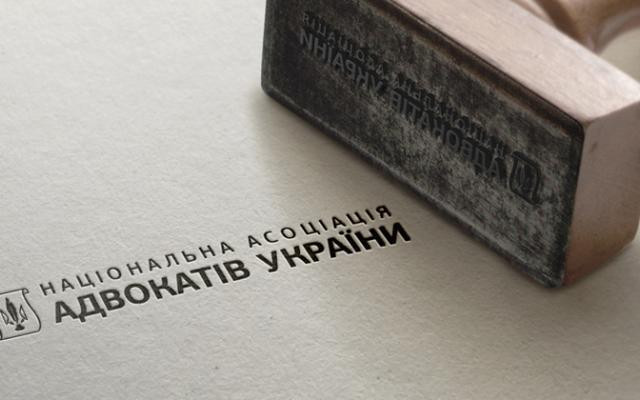
Self-government
The BCU demands a review of the composition of the government working group on reforming the advocacy profession
The President of the UNBA, BCU Lidiya Izovitova, appealed to the Cabinet of Ministers of Ukraine to review the composition of the working group on improving legislation in the field of advocacy and legal practice.
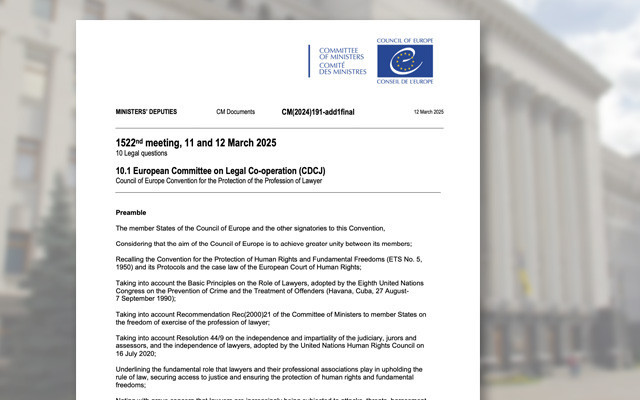
Guarantees of the practice of law
The President has determined, who will sign the Convention for the Protection of the Profession of Lawyer
President of Ukraine Volodymyr Zelenskyy authorized Ukraine's Permanent Representative to the Council of Europe Mykola Tochytskyi to sign the Council of Europe Convention for the Protection of the Profession of Lawyer.

Discussion
Why lowering the age of marriage lacks legal logic
Although until 2012 there was a provision in family law that allowed children to marry from the age of 14 under certain circumstances, its return to Ukrainian law would contradict international obligations and the logic of criminal law.
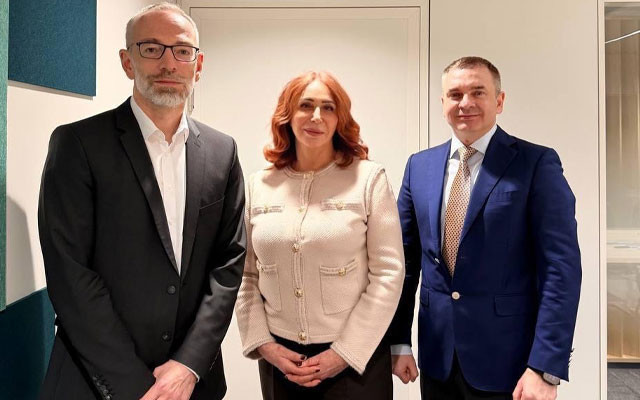
European integration
Open dialogue between the UNBA and the European Commission on the path to EU
The Ukrainian National Bar Association held a working meeting in Brussels with Mr Wolfgang Nozar, Head of Unit for Governance, Rule of Law and Financial Assistance, Directorate-General for Enlargement and Eastern Neighbourhood (DG ENEST), European Commission.

Self-government
A report on Ukrainian advocacy was presented in the European Parliament
Can a shadow report on advocacy replace the political framework of the Roadmap on the rule of law with demands for the restructuring of self-government? Where is the line between accountability and the seizure of institutions? And how can we respond to narratives with data rather than impressions?
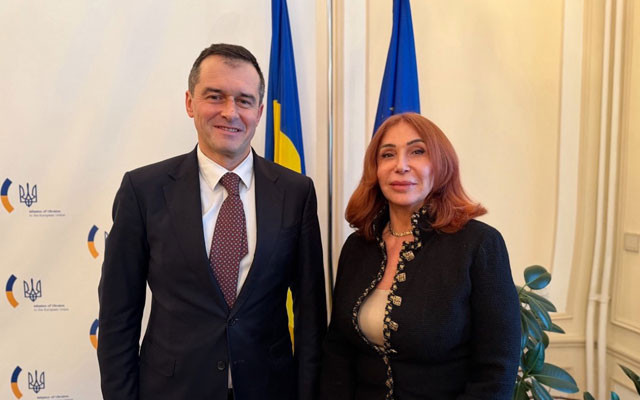
European integration
UNBA and Ukraine's representation to the EU have synchronized their priorities
On February 5, in Brussels, the President of the UNBA, BCU Lidiya Izovitova held a working meeting with the Ambassador Extraordinary and Plenipotentiary of Ukraine, Representative of Ukraine to the European Union Vsevolod Chentsov.
Publications

Volodymyr Matsko Extradition as a systemic form of rights violations

Victoria Yakusha, Law and Business The anti-corruption vertical cannot «take care» of the Bar as an institution, - acting head of the HQDCB

Censor.net Protecting advocates – protecting justice: addressing concerns about the new law

Ihor Kolesnykov A BRIEF SUMMARY REGARDING THE APPLICATION OF THE ORDER ON EXTENDED CONFISCATION IN LATVIA REGARDING FINANCIAL ASSETS OF…

Valentyn Gvozdiy WORKING IN A WAR ZONE

Lydia Izovitova Formula of perfection

Sergiy Vylkov Our judicial system is so built that courts do not trust advocates

Iryna Vasylyk Advocacy in the proclamation of Independence of Ukraine
